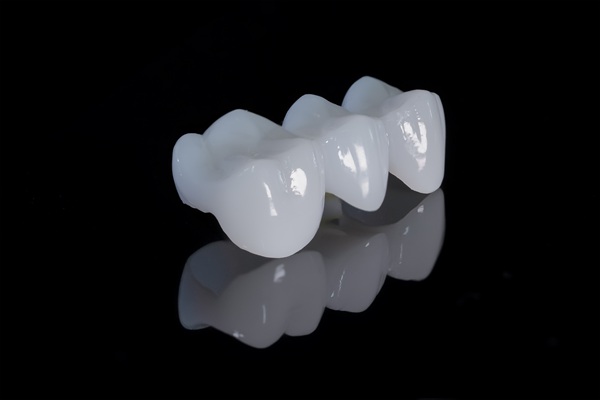 Dental crowns are one of the most common and versatile tooth restorations. Dentists have been using them for decades to help preserve the look and function of a person's smile. If you have missing or damaged teeth, need a root canal, or want to improve the appearance of your smile, dental crowns can help.
Dental crowns are one of the most common and versatile tooth restorations. Dentists have been using them for decades to help preserve the look and function of a person's smile. If you have missing or damaged teeth, need a root canal, or want to improve the appearance of your smile, dental crowns can help.
What is a dental crown?
A dental crown is a tooth-shaped cap that a dentist cements over a decayed or damaged tooth. Also known as a dental cap, these restorations can consist of metal, porcelain, composite resin, zirconia, or porcelain fused to metal. Crowns are what is known as an indirect restoration. This means that, unlike fillings applied directly to the tooth, dentists or technicians fabricate crowns outside the patient's mouth.
Two separate appointments are usually needed to receive a crown. During the first visit, the dentist removes some parts of natural enamel so the tooth can accommodate the crown. Then, the dentist takes an impression of the tooth, which is sent to the lab to construct the crown. The placement of the crown takes place at the second appointment. Often, the dentist gives the patient a temporary crown to protect the tooth until the permanent crown is ready.
Benefits of crowns
Dental crowns are highly customizable. The dentist can design one that fits the patient's needs and budget. Here is a closer look at the benefits of dental crowns and the reasons dentists have been recommending them for decades.
Protection and reinforcement
One of the most important functions of dental crowns is to reinforce teeth that have been root canal treated or badly damaged. These are often teeth that would otherwise need to be extracted. Thanks to dental crowns, damaged or decayed teeth can remain strong. The crown restores the tooth's chewing function and reduces or eliminates sensitivity. In addition, crowns help protect the teeth from further decay or damage.
Improve appearance
A decayed, damaged, or jagged tooth can make a patient self-conscious about their teeth and unwilling to smile. However, a dental crown can restore the tooth's shape. Tooth-colored material can be used so the crown matches the color of the surrounding teeth in addition to their shape. Dentists can even use crowns to cover misshapen or badly discolored teeth.
Versatile
Another key benefit of dental crowns is their versatility. Dental crowns can be used to repair damaged teeth and as a part of natural-looking dental restorations, such as dental bridges or dental implants. Crowns can also be customized to suit a patient's needs. For example, when restoring a back tooth where strength is a bigger concern than cosmetics, the crown can be made of a stronger material (e.g., metal). However, if the treated tooth is toward the front of the mouth, the crown can be made of porcelain so that it blends into the surrounding teeth.
Dental crowns help restore smiles
Dental crowns are a versatile and effective solution for various dental problems. They offer many benefits, from restoring the function of a damaged tooth to improving a smile’s appearance. To learn more about dental crowns and how they can restore your smile, call our team today.
Request an appointment or call Dental Partners Fountain City at 865-672-6525 for an appointment in our Knoxville office.
Related Posts
There are many ways to keep your teeth bright, white, and healthy. However, you may see unfamiliar stains or shades on your teeth, making them appear gray. Fortunately, a general dentist can evaluate gray teeth by identifying the root cause of the change.It is common for teeth to change color, and it does not always…
Dental implants are the ideal solution for anyone looking to replace damaged or missing teeth. They are the top choice for patients who want the next best thing to real teeth and provide a permanent solution that can last a lifetime.Dental implants can be used to replace one or multiple missing teeth. They provide excellent…
Most everyone is familiar with the fact that dentists use dental fillings to treat cavities. What not everyone is aware of, however, is why dentists need to treat cavities with fillings or why teeth decay the way they do in the first place. We all want to keep our teeth healthy, and fillings have been…


